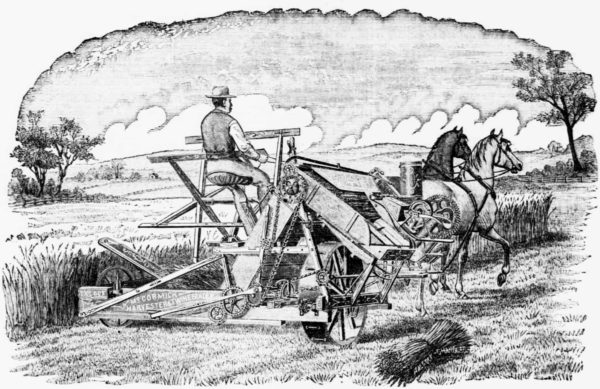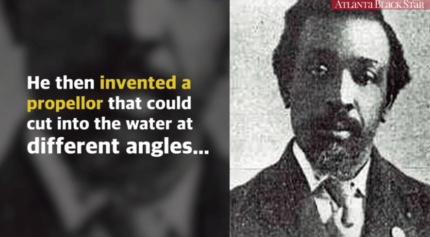The Patent Act of 1793 and 1836 barred enslaved Africans from obtaining patents because they were not considered citizens.
In 1861, Jefferson Davis, president of the Confederate States of America, enacted a patent law that allowed enslaved Africans to receive patent protection for their inventions, according to Bloomberg.com.
In 1870, the U.S. government passed a patent law giving all American men, including Blacks, the rights to their inventions.
Jo Anderson
Cyrus McCormick, considered the “Father of Agriculture,” has been widely credited, along with his father Robert McCormick, for revolutionizing the farming industry with the invention of the mechanical reaper. Little is reported about Jo Anderson, the Black man who worked closely with slave-holder McCormick on the machine.
Lester R. Godwin Jr., a retired curator of the McCormick Farm in Augusta and Rockbridge, Va., said that Anderson “has as much to do with the later development of the reaper as Cyrus McCormick.” Godwin would add, “Unfortunately, history likes to put things in neat boxes … and often those who are involved in the creation of something don’t get credit for it.”
McCormick’s grandson also acknowledged the work of Anderson in his 1931 book, “The Century of the Reaper.”
“Of that day in July 1831, when the reaper was first tested before an audience of friends, neighbors and skeptics in the Shenandoah Valley, Jo Anderson was there, the Negro slave who, through the crowded hours of recent weeks, had helped build the reaper.”



